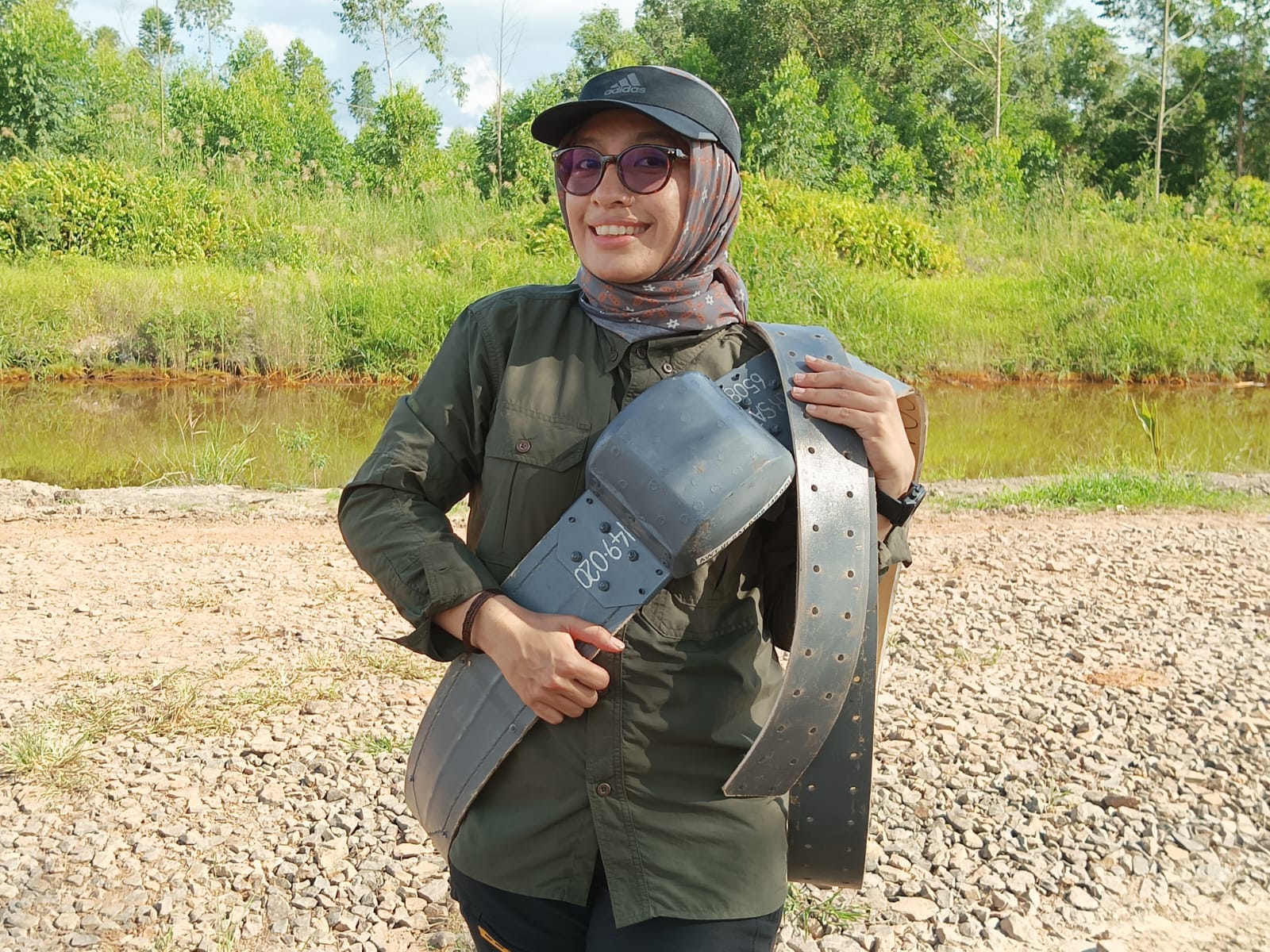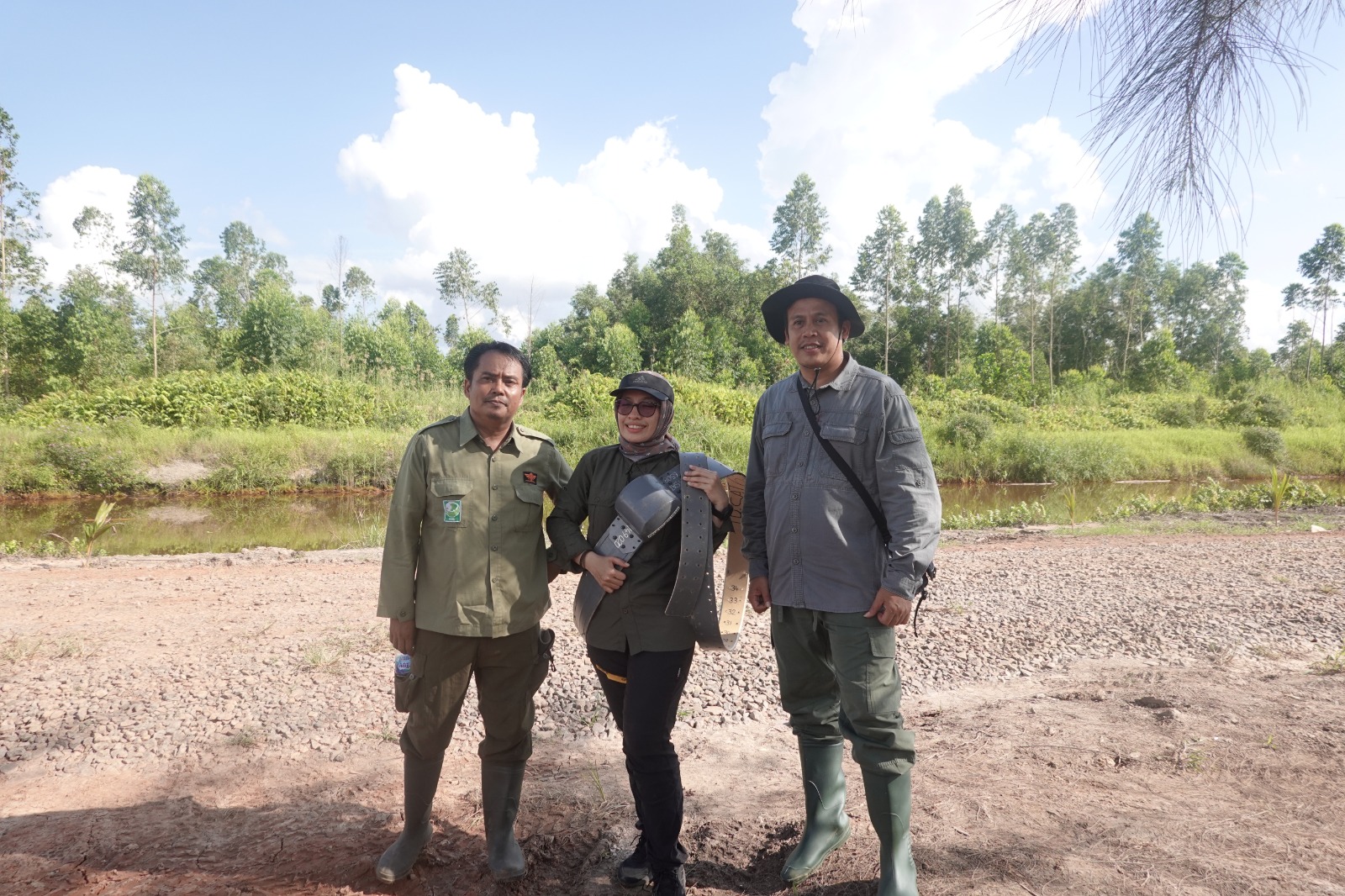
Imagine working in a forest surrounded by lush plants, towering trees, and the sounds of wildlife. For Jasmine Doloksaribu, this is a typical day at the office. As the Head of Landscape Conservation, Health, Safety & Environment at Asia Pulp & Paper (APP) Sinar Mas, Jasmine devotes her time and expertise to cultivating a sustainable forestry industry.
With a background in environmental engineering and a strong passion for environmental sustainability and human health, Jasmine plays a pivotal role in helping to shape the future of the forestry sector through APP’s various sustainability initiatives.
As part of APP’s commitment to managing protected forest areas, Jasmine and her team focus on helping local fauna thrive in the ecosystem, with a focus on conserving three key endangered species. To protect the Sumatran Elephants, Sumatran Tigers, and Bornean Orangutan, foresters like Jasmine focus on implementing wildlife-friendly concession management practices such as conducting snare sweeping operations, building feeding pockets, as well as camera trapping and GPS collaring to monitor their movements for human-wildlife conflict mitigation. All of these activities ensure that the forests remain a safe, habitable home for wildlife.
Besides wildlife protection, Jasmine and her team also maintain forest sustainability and flora preservation by paying close attention to the quality of water, soil, and air in the forest. By routinely evaluating these aspects, Jasmine can ensure that the level of environmental pollution is well managed and that the forest can thrive in optimum conditions.
While forests provide the raw materials needed for humans to thrive, it is important that we work together to ensure a harmonious coexistence between humans and nature, so that future generations can enjoy forests the way we do today. This means focusing on production, forest, and community aspects to ensure APP’s operations remain sustainable in forest areas, as outlined in the Sustainability Roadmap Vision: 2030 (SRV2030) plan.
Although the majority of the responsibility lies on APP to implement sustainable forest management and responsible production processes, it is equally important for the company to collaborate with local communities to ensure that all aspects are taken into consideration when protecting forests.
Using a hands-on participatory approach, Jasmine and her team directly engage local communities to achieve sustainable forest management through programs such as the Desa Makmur Peduli Api (DMPA) program. To encourage community ownership, DMPA provides alternative sources of livelihood and mentors them on eco-friendly practices, such as avoiding the use of agricultural land burning.
Jasmine emphasizes that passion is key when considering a career in forestry, saying, “The most important thing is to have a strong interest in environmental and forest conservation.”

“The forestry industry may have traditionally been regarded as a male-dominated workforce, but I am happy to be one of the women stepping up to apply my knowledge and do my part for the environment,” shared Jasmine.
As we continue to use resources from forests to create daily necessities, let us take a moment to appreciate the efforts that foresters put into producing them sustainably and responsibly. Forests provide everything needed for humans to thrive, which is why it is essential for humans to find the right balance between benefiting from nature, and giving back to nature.